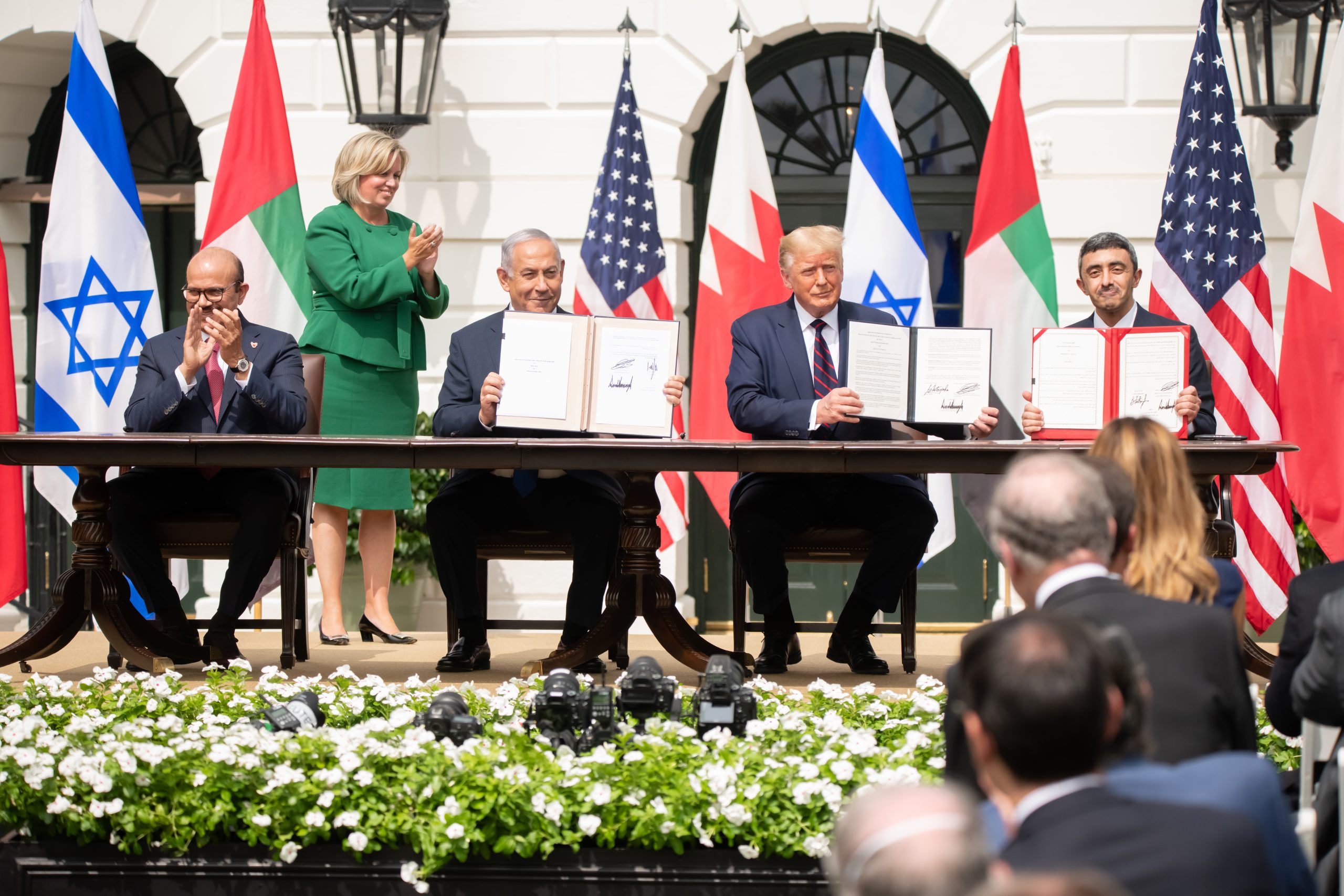The Hidden Cost of the Abrahamic Accords

A new saying is making the rounds in the Middle East: Bush destroyed Iraq, Obama destroyed Syria, and now Trump is destroying what’s left. His celebrated so-called Abraham Accords is a part of that.
Morocco has become the latest Arab government to agree to recognize Israel. The Trump administration naturally claimed credit for another diplomatic achievement. Even some of President Donald Trump’s sharpest critics lauded him for this accomplishment.
The praise is misguided. The Abrahamic agreements required little deft negotiation. Instead, Washington paid for every recognition by sacrificing American interests and short-changing other nations and peoples.
The Morocco-Israel pact is typical. Located in northwest Africa, Morocco always was distant from the Israel-Arab wars and long had a working relationship with Israel. Peace between the two governments was never an issue. The main benefits are symbolic and go to Israel, not the U.S.
The administration celebrated Rabat’s decision while announcing that the U.S. now recognizes Morocco’s control over the Western Sahara. The latter was a Spanish territory until 1975. Rather than accept self-determination by the Sahrawi people, Rabat seized the region. The Polisario Front resisted Rabat’s invasion and is considered the Sahrawi’s legitimate representative by the UN.
Having refused, along with the rest of the international community, to legitimize Moroccan control over the region for the past 45 years, Washington suddenly did what no other nation has done, choose Morocco over the Sahrawi people. This evidently was Rabat’s price for recognizing Israel.
The decision is likely to further radicalize young Sahrawi men. New York Times columnist Nick Kristoff denounced “whitewashing Morocco’s theft of a nation.” Senate Armed Services Committee Chairman Jim Inhofe also criticized the president, pointing out that he “could have made this deal without trading the rights of a voiceless people.”
The administration also apparently offered Rabat $3 billion in investment through the International Development Finance Cooperation, some of which will go to a company owned by the king. Thus, U.S. taxpayers, too, will pay for Morocco’s recognition of Israel. The president evidently is more concerned about the Netanyahu government than the American people.
The situation is similar for other participants in the Abrahamic Accords. The price of recognition by the United Arab Emirates was a $23 billion sale of F-35 aircraft. The administration, eager to sell arms, was happy to please Abu Dhabi, despite the latter’s past weapons transfers to al-Qaeda affiliates and close relations with China and Russia. The president helped thwart Senate efforts to block the sale. Acting as the UAE’s handmaiden was not a first: through prior U.S. weapons deals, as well as support in the war against Yemen, Washington enabled multiple war crimes by the “coalition” including Abu Dhabi.
Under strong pressure from Washington Sudan made a commitment to recognize Israel, but the agreement may falter, since it is unpopular with the public and requires approval of a legislature which does not yet exist. More important, though, it was not free. The administration agreed to limit Sudan’s financial liability for past terrorist attacks. Washington also may have promised to protect Khartoum officials, especially members of the governing military, from liability before the International Criminal Court and other international fora. This is a high price for Americans and others to pay, given the many terrible crimes committed during the 30-year Omar al-Bashir dictatorship.
The fourth adherent to the Abrahamic Accords was Bahrain. It expects continued support for the dictatorial Sunni monarchy. Manama has brutally suppressed the democratic aspirations of its majority Shia population, which Washington ostentatiously supports for nearby Iran. Saudi Arabia, the most tyrannical government in the region, also has backed Bahrain. The presence of the Fifth Fleet already complicates the U.S.-Bahrain relationship; acting as Israel’s factotum reduces American leverage even further.
The willingness of Washington policymakers to sacrifice U.S. interests on behalf of Israel is not new. For a half century America has effectively subsidized Israel’s military occupation over millions of Palestinians, a grievous human rights violation that would be tolerated nowhere else. This policy has spurred terrorism around the world and helped turn the Middle East into perhaps the world’s most volatile region.
Nevertheless, until now successive U.S. administrations at least disguised their support for Israeli policies which undermined American interests. Earlier presidents claimed they were acting for the U.S. The Trump administration dropped all pretense, actively encouraging Israeli policy that amounts to the colonization of the West Bank and creation of a permanent subject population, offering a source of cheap labor for Israeli industry.
This year Washington expanded its Israel-first approach to reward authoritarian Arab states which engaged the Netanyahu government. Under political siege in Jerusalem—and facing trial on corruption charges—Prime Minister Benjamin Netanyahu needs every political advantage he can get, especially with another election looming this spring.
The Middle East needs peace. However, that requires a commitment by all nations, including Israel, to treat other nations and peoples with respect. Instead of seeking to build a better and more just regional order, U.S. policy has enhanced Israel’s dominance and maintained the subjugation of millions of Palestinians, ensuring future unrest, violence, and instability.
The final insult has been to sacrifice multiple American policy objectives for Israel’s benefit. Washington is strengthening repression in Bahrain, underwriting aggression by UAE, sacrificing the Sahrawi people, undermining reform in Sudan, and even abandoning justice for Americans harmed by Sudan. The administration calls this an “America first” policy?
Khaled Saffuri, president of the National Interest Foundation, is a frequent contributor to The American Conservative.